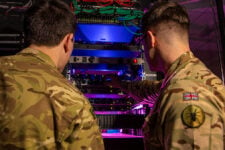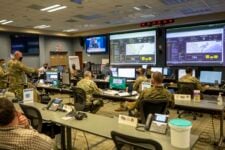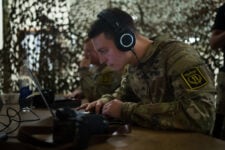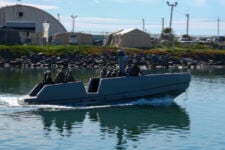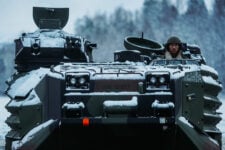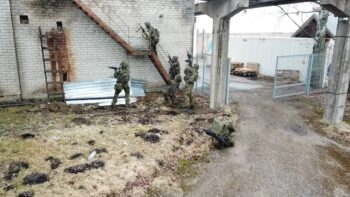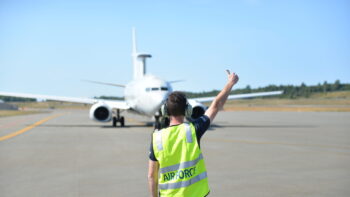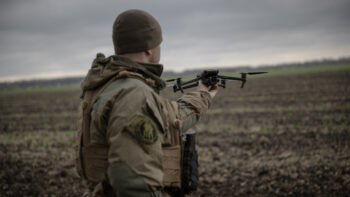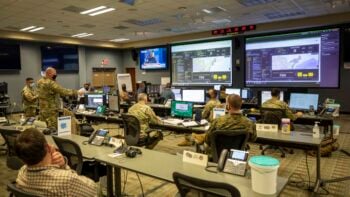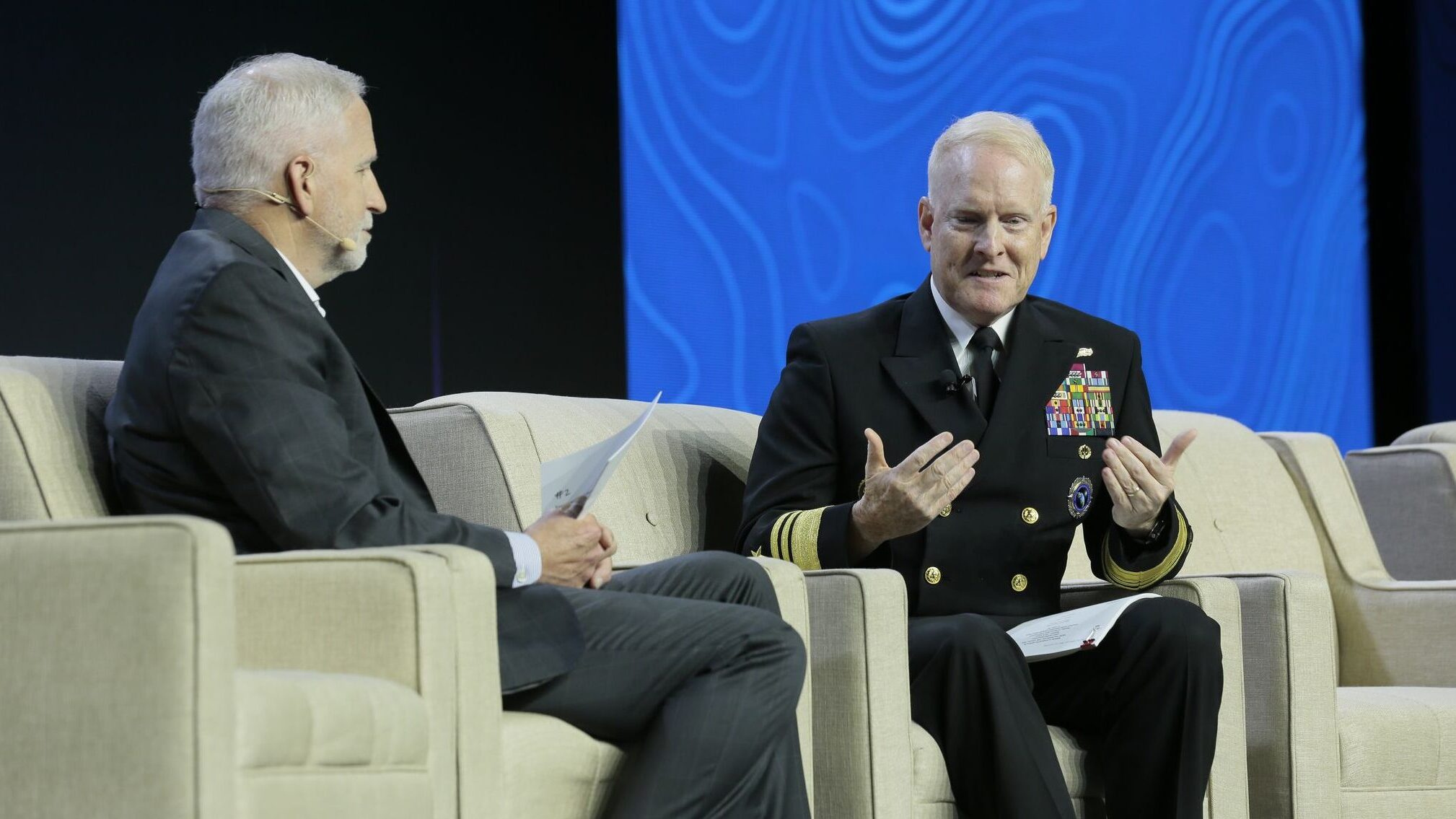
Vice Adm. Frank Whitworth, NGA director (Image courtesy of USGIF)
DoDIIS 2023 — The National Geospatial-Intelligence Agency will soon ask industry to submit their proposals for GEOINT data services, the agency’s director said today, as it looks to take better advantage of commercial sector capabilities.
“It’s to purchase new commercial GEOINT data services from multiple vendors,” Vice Adm. Frank Whitworth said at the Department of Defense Intelligence Information System, or DoDIIS, conference. “The resulting contracts are called Luno and A, luno, alpha … and they’re intended to help us meet the increasing demands for commercial GEOINT. The goal is to enable NGA to do two things: acquire commercial GEOINT object detections and leverage industry analytics and automation in areas of national security interest, of course.”
Whitworth did not reveal how much the contracts would be worth, saying, “I wish I could tell you the amount, but let’s just say it’s significant.”
Whitworth’s comments follow years of DoD and intelligence community officials expressing interest in increasing adoption of commercial space technologies.
AI And Project Maven
In November, Rachel Martin, director for Project Maven, the Pentagon’s flagship effort to speed up the use of artificial intelligence across the military, said NGA was “in the process” of releasing a request for proposals (RFP) so industry could make their pitch to be a part of that program.
The RFP is expected to be released in the second quarter of fiscal 2024 for Maven, which was split between the NGA and the Pentagon’s Chief Digital and AI Office last year. Martin, at the time, said the the agency was looking to experiment with generative AI and large language models in the future.
Today, Whitworth said NGA has “embraced” the opportunities AI can provide, saying it can help NGA sift through all the data the agency has. Speaking about Maven, he added that NGA taking operational control of the program’s GEOINT AI services was “something we have to do because we’re responsible for analyzing a staggering amount of data.”
“We’ve worked hard with the combatant commands to integrate AI into their workflows, accelerating operations and decision speeds,” he said. “We’ve also increased the fidelity of targets, improved geolocation accuracy and refined our test and evaluation process. Plus, we’ve ensured Maven models can run on other machine learning platforms.”
But, he added, there needs to be AI governance processes that promote secure and ethical AI development. To that point, NGA is establishing a “GEOINT responsible AI training program,” or GREAT for short, as it adopts AI capabilities across the agency.
“And let’s not forget about that pacing challenge of China and what the Chinese are doing with AI. … China’s military is using AI to collect, fuse and transmit massive quantities of data to speed their processing and create their information advantage over the US and our allies,” Whitworth said. “They also enjoy a very direct relationship with their own commercial industry, incorporating these assets into their architecture. So even as we respond to crises of the moment, from Europe to the Middle East, we will always stay focused on China.”



